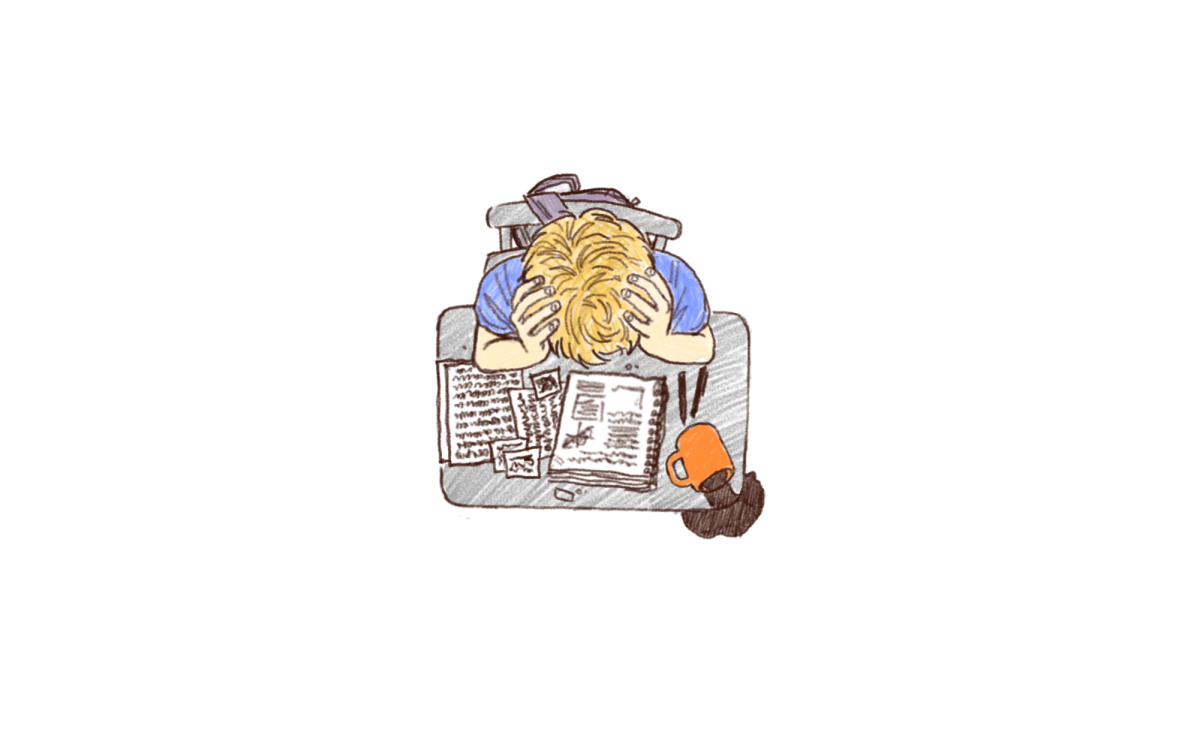As the semester draws to a close, stress becomes a common companion. From missing assignments to final exams, it’s easy to get overwhelmed. But you’re not alone.
Being a teenager is hard and meeting the demands of school and social life can be difficult.
“Kids are really stressed [thinking], ‘what do I prioritize? I don’t have [enough] time, what can I work on?’” one of Central’s psychologist’s Vickki Tsikouris said.
Understanding the root causes of this stress and developing a plan to elevate them can help with overwhelming emotions.
Academics are students’ number one stressor. According to the National Library of Medicine, students report stress due to extensive course loads, lack of physical exercise and lengthy exams.
Falling behind due to missing assignments can play a large part in stress toward the end of the semester.
“It can be pretty overwhelming to know where to start, or what to make up and what to focus on first,” Tsikouris said.
As burnout, school responsibilities, extracurricular activities and family obligations begin to consume more hours each day, managing your time effectively becomes crucial for taking care of yourself.
“Lay out a schedule for the week, using an organizer, some type of calendar, planner, apps on phones.” Central health teacher Megan Bice said. “Make a plan or a list of top priority items when they need to be done by crossing them off.”
If things are feeling too overwhelming, it’s also important to remember that you can say no.
“Students feel so much pressure to be in so many clubs and activities, but if you’re not giving your full self, it could be counterproductive,” Bice said.
Overall, self care looks different for each student, but creating some good habits through these stressful times can really help.
“If you’re not taking care of yourself, you’re not able to give anything to your classes, to your relationships, to your clubs, to your activities.” Bice said. “It’s your health, you have to put yourself first.”
Academics aren’t the only thing bringing students down as the semester ends; early sundown can also lead to a natural decline in emotions.
“If you go home and it’s pitch dark outside, you may be a little less willing to go back out or you feel like it’s night already, it can really affect motivation,” Tsikouris said.
Seasonal Affective Disorder (SAD) is a type of depression related to the changing of the seasons. According to Mayo Clinic, reduced sunlight can cause a drop in serotonin that may trigger this depression which is common in young adults.
Self care can often be overlooked, but is clinically proven to reduce or eliminate anxiety and depression, reduce stress, improve concentration, minimize frustration and anger, increase happiness, improve energy and more, according to Southern New Hampshire University.
Bice believes when you neglect self care like nutrition, your mental health can start to go down.
“Nutrition [gives] your body the nourishment to be able to continue throughout the day so you feel good,” Bice said.
As many students know, finals season often means loss of sleep from staying up late to work on assignments or studying for a test. For this reason, one of the most important self care practices is a good sleep schedule.
“Sleep is letting your body, your brain, your memory, all reset. It’s the reset factor that [your body] needs,” Bice said.
Not only should you aim for eight hours of sleep, but try to stick to the same routine every night, like showering, brushing your teeth, then sleeping at nine pm. According to Washington University in St. Louis, routines can improve the quality and length of sleep.
Another big stressor for students is friendships and relationships, online and in-person.
“One of our number one stressors that we see for kids [is] social pressures and social dramas and conflicts,” Tsikouris said. “If you have a conflict with a friend, it causes tension within a peer group, tension that disrupts your normal flow is a big stressor.”
As the weather turns colder, screen time tends to increase for kids, according to Dr. Sonal Chandratre, a pediatric endocrinologist at Aspirus Health, as quoted in an article by WSAQ-TV.
“There’s established information about higher levels of anxiety, depression and loneliness, it’s correlated with more screen time and social media use,” Tsikouris said.
For a lot of kids, it’s hard to put down your phone. Setting smaller goals for yourself, like decreasing your daily screen time by one hour, can really improve your mental health.
“[Set] small goals that you feel might be more manageable, that you can attain, instead of ‘I’m not going to use my phone at all’, especially if you’re very connected with your phone.” Tsikouris said.
“If you’re not taking care of yourself, you’re not able to give anything to your classes, to your relationships, to your clubs, to your activities.” Bice said. “It’s your health, you have to put yourself first.”




